
|
This book introduces the idea of “global dexterity”, which refers to the ability to adjust your behaviour in different cultural contexts while keeping your own authentic self. Featuring a collection of examples of cultural differences in various parts of the world, the book aims at helping you develop skills of interacting with people from diverse cultures through understanding cultural differences.
Highlights include the diagnosis of a new culture code (pp. 47-70), identifying challenges with the code (pp. 71-84), and how to adapt your behaviour to interact with people from that culture (pp. 85-108).
|
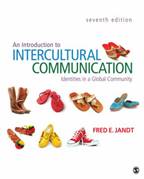
|
Having defined the culture as a context for communication and introduced intercultural communication in Part 1, the book then details communication variables, cultural values, and how immigration induces cultural impacts and cultural contact. The book draws on case studies of communication behaviours in different cultural contexts so as to help you enhance your intercultural communication competence through understanding perceptions of and reactions to cultural behaviours.
Highlights include barriers to intercultural communication (pp. 80-105), contact between cultures (pp. 278-303), and descriptions about culture shock (pp. 309-311).
|
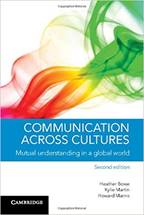
|
Exploring how cultural context affects the use and understanding of language, the book elaborates components of context in Part I and presents conversation studies across cultures in Part II. The final part reveals how various facets of cultural context come into play. The book appeals to readers who want to improve intercultural communication skills through identifying cultural context components.
Highlights include conversation across cultures (pp. 95-117) and successful intercultural communication (pp. 227-244).
|
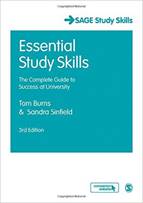
|
Aiming at guiding students how to cope with university life, this book is laden with practical information about interpersonal as well as academic skills and strategies. With abundant tips, activities, and clear learning outcomes in every chapter, you will learn the essential study skills at university level in a step-by-step manner.
Highlights include independent study skills and how to make the best use of computers (pp. 70-117), creative learning strategies (pp. 188-199), presentation skills (pp. 318-337), and reflective learning (pp. 373-383).
|
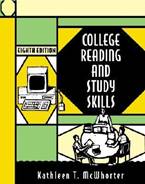
|
The book comprises an array of topics including goal setting, time management, learning strategies, vocabulary learning, reading skills, and exam skills for university students. With examples, exercises, and self-evaluation, you will be guided to equip yourself with the necessary and suitable learning strategies and study skills.
Highlights include learning style and learning strategies (Ch. 2), reading electronic sources (Ch. 9), critical thinking and reading (Ch. 10), expanding your vocabulary (Ch. 11), and study and review strategies (Ch. 15).
|
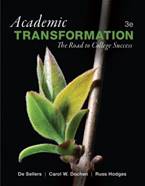
|
Focusing on developing your ability to evaluate and choose, the book guides you how to evaluate and make choices in terms of thoughts, feelings, and behaviours with an ultimate goal of transforming yourself into a successful university student – achieving self-selected goals in your academic pursuits. A number of case studies concerning students’ learning experiences are presented with questions for reflection. Each chapter ends with a Thinking Critically section, helping you practice thinking skills and reinforce concepts learned in the chapter.
Highlights include the road to autonomous learning (Ch. 1), learning outside class (Ch. 4), establishing direction in your life (Ch. 7), and making effective choices (Ch. 9).
|